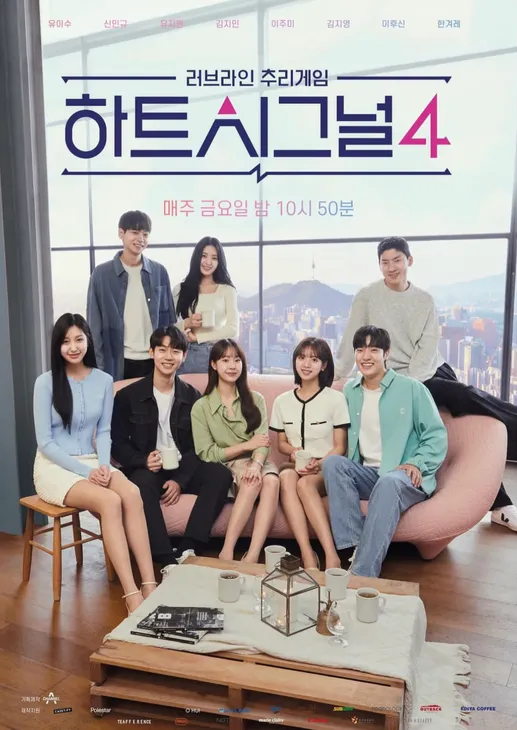
After three years, the Heart Signal series has finally returned with its fourth season. As the original program that ignited the current dating show craze in Korea, Heart Signal 4 has quite a bit to live up to. The audience’s expectations are raised not only by other standout programs such as EXchange or Single’s Inferno but also by previous seasons of Heart Signal with season two in particular receiving an incredible amount of love.
Regrettably, though, season four isn’t much of a dating reality show. Instead, it comes across as a disastrous attempt at producing a compelling romance drama. While it is true that these kinds of programs are often compared to romance dramas, the editing and lack of direction make Heart Signal 4 feel misleading, manufactured, and worst of all, boring.
Note: The following review contains spoilers.
Heart Signal 4 is sorely inconsistent, and it seems like the production crew was unsure of what direction to take the show in. On one hand, the setup of an environment with virtually no rules besides going on dates allows the cast members to have authentic interactions with less pressure to act differently for the cameras. On the other hand, the peculiar editing tries to make things unnecessarily tense and thrilling. And because the editing team is attempting to create a dramatic story with mundane and natural footage, the season feels forced and somewhat fabricated.
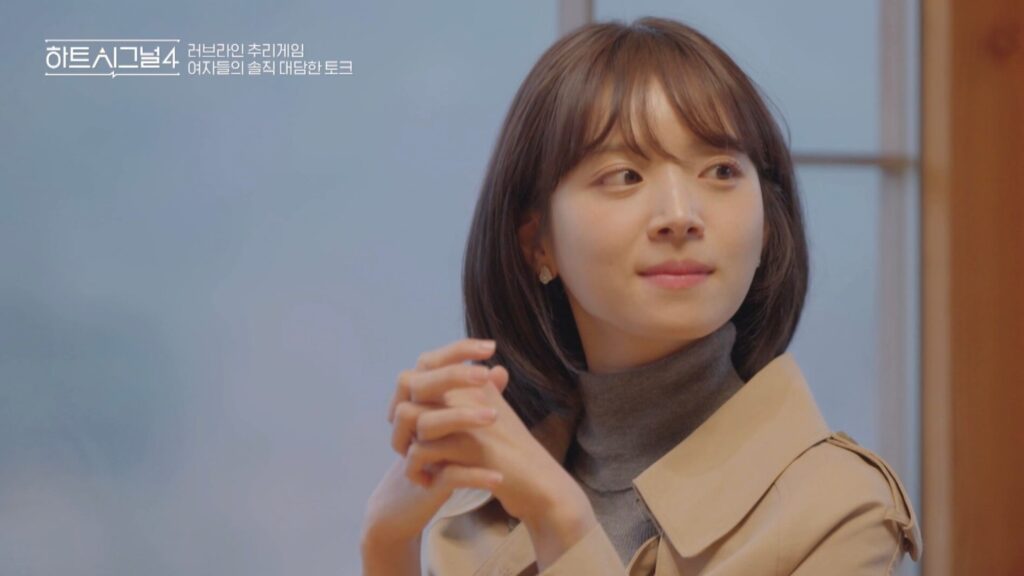
As the participant who received the most attention at the Signal House, Kim Ji-young gets a great deal of screen time and is undoubtedly the main character of this pseudo-romance drama. Nearly 70% to 80% of Heart Signal 4 is focused on her with the rest of the cast being reduced to supporting roles. This is quite disappointing because the participants are really likable, and their relationships, whether as lovers or just friends, is endearing to see.
This isn’t to say Ji-young’s increased screen time is unwarranted though. She’s obviously a very charming person and with three out of four male housemates (Han Gyeo-re, Lee Hu-shin, and Yoo Ji-won) interested in her, Ji-young’s prominence in the show is expected. Rather than the amount of screen time she has, it’s the way the love triangle with her, Shin Min-gyu, and Yoo Yi-soo is presented that partially makes the season so frustrating to watch.
There is a lot of emphasis on Ji-young’s point of view, portraying her feelings for Min-gyu and her discomfort as he and Yi-soo gradually become closer to each other. This is important because it lets viewers understand and empathize with her. The problem is that Ji-young’s perspective is essentially the only perspective we see. Min-gyu gets a decent amount of screen time, but his actions are a bit confusing, and his thoughts on Ji-young and Yi-soo remain a mystery for the majority of the season. In Yi-soo’s case, her budding relationship with Min-gyu is not viewed as heart-fluttering but as a threat to Ji-young. The times when a sweet moment between Min-gyu and Yi-soo is framed as romantic are few and far between. Most often, whether Yisoo is interacting with Min-gyu or talking with other female housemates about her dates with him, these scenes are treated like a stab to Ji-young’s heart with close-ups of her face and ominous background music playing when Yi-soo enters the picture.
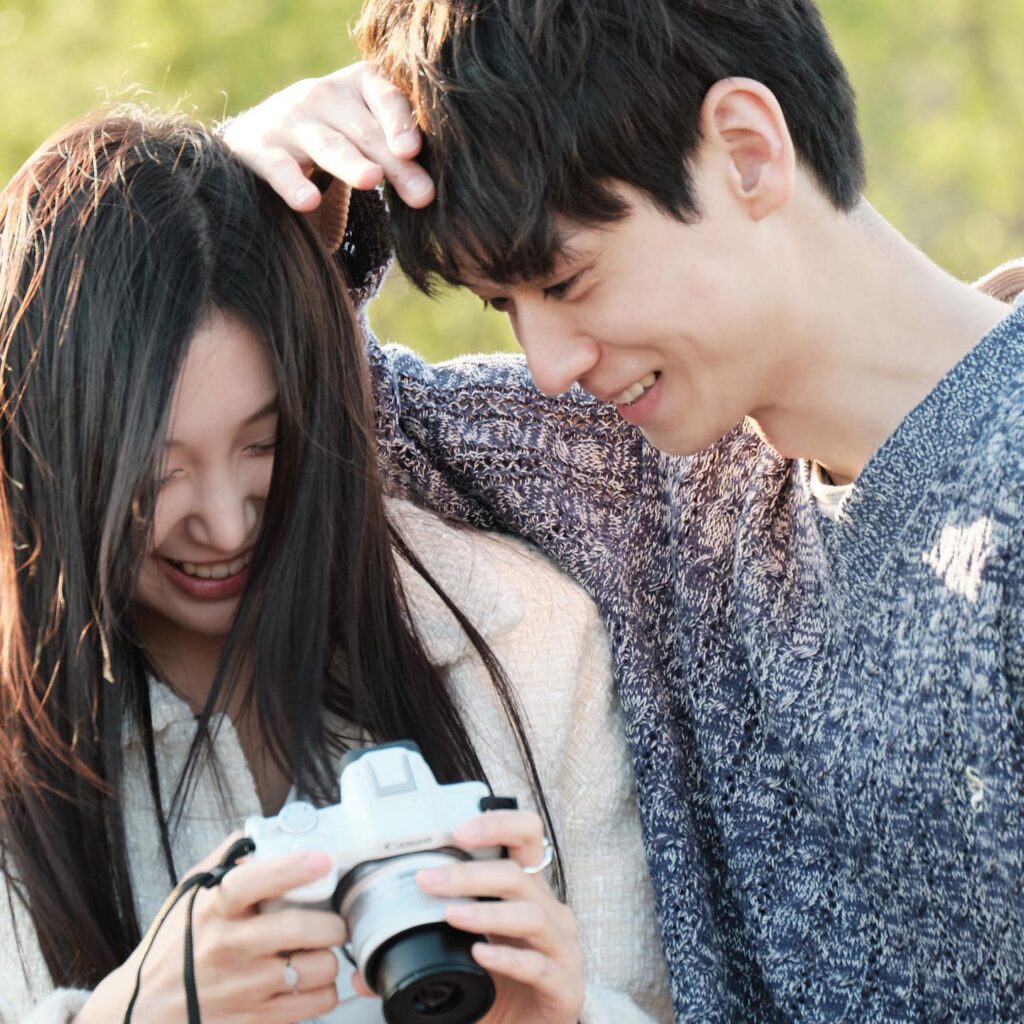
When Ji-young has a change of heart and becomes interested in Gyeo-re, the narrative switches gears and focuses less on the love triangle with Min-gyu and Yi-soo having little presence in the episodes. In fact, the second to last episode only shows Min-gyu and Yi-soo for 2 minutes out of 100 minutes. This lack of screen time is really off-putting considering they are one of the final couples at the end of the show.
Unfortunately, this isn’t the only component that is bewildering. The editing for a lot of the cast members’ conversations, especially in the earlier episodes, can be extremely puzzling with an unreasonable amount of flashbacks.
Occasionally, these flashbacks are even given their own flashbacks. A flashback within a flashback that is shortly followed by another flashback, and another, and another. Is this not overkill for conversations that probably only lasted a couple of minutes in real life?
To make matters worse, the footage shown through these flashbacks are not just minor moments or scenes we have seen before but actual significant events that influence how we view the participants’ relationships.
Noteworthy moments like Hu-shin giving a wooden piece to Ji-young (which he considered a straightforward confession), Lee Ju-mi gifting fabric posters to Gyeo-re, and Ji-won penning a heartfelt letter to Ji-young are cut out, concealed from viewers, and only shown when the participants talk about them during conversations much later.
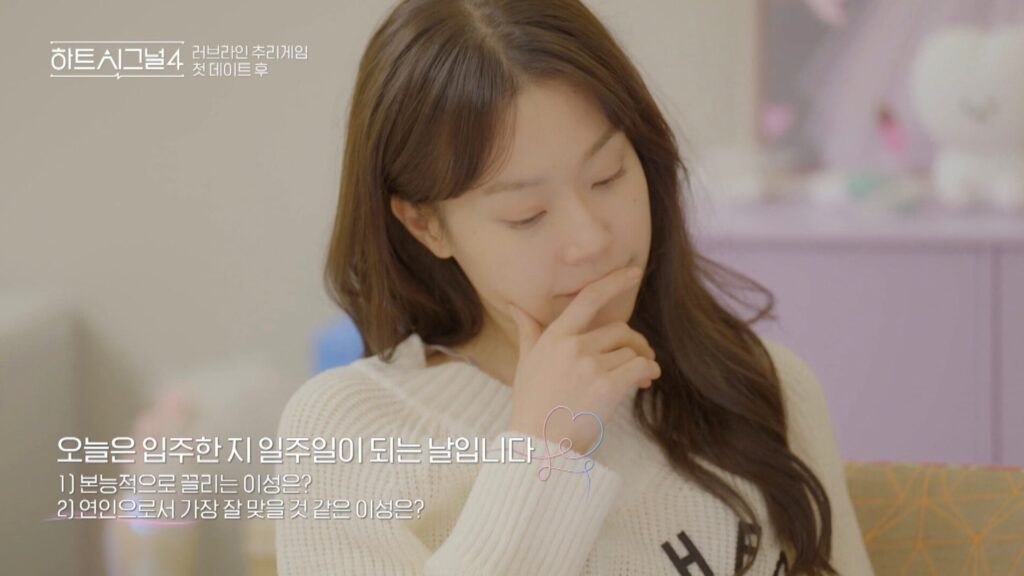
These scenes would have been more impactful if they were just shown as they were, not through brief flashbacks like an afterthought. The audience would have a better understanding of the participants’ emotions whenever we see them interact. It is difficult to empathize with the participants because we are not given a lot of context as to why they feel the way they do. Editing out such scenes also conflicts with the thrilling drama narrative that the production team seems keen on, and the show would be remarkably more interesting if so much footage was not kept from viewers. Unfortunately, the crew is tied down by the show’s concept.
Longtime Heart Signal viewers will know that the prediction game, a segment where the panelists observe the housemates and predict where their “heart signals” will point toward, is a major part of the series. Watching the panel analyze the interactions can be fun and engaging as shown in previous seasons, but season four takes the mystery aspect of the series too far. Hiding significant scenes fails to intrigue the audience, but rather makes things needlessly perplexing and frustrating. The severe ambiguity may have made the prediction game more challenging for the panelists, but if this is done at the expense of the audience’s enjoyment of the show, is it really worth the effort? At the end of the day, this is still a dating reality show. Viewers want to see how these new relationships form and develop. Instead, the audience is robbed of numerous interactions and manipulated by the editing to think a certain way about the participants’ storylines.
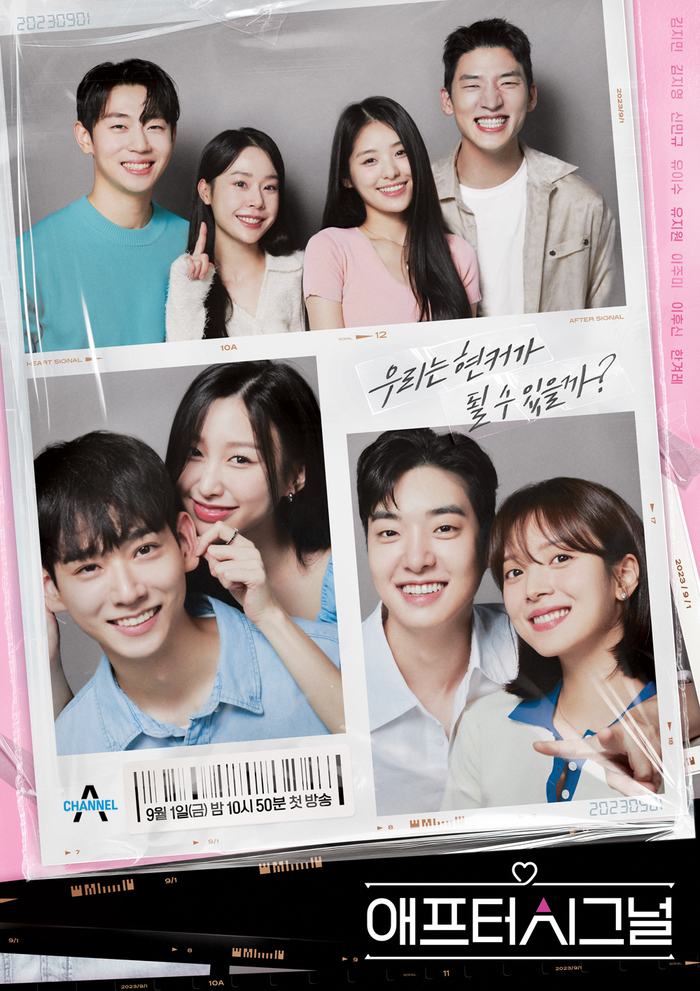
Two couples (Gyeo-re and Ji-young along with Min-gyu and Yi-soo) are successfully established during the final episode, but it does not feel even slightly romantic or heart-fluttering. We only have a shallow understanding of the cast members’ personalities, never mind how the couples, especially Min-gyu and Yi-soo, became so close to one another.
Overall, Heart Signal 4 is ruined by its conflicting format and appalling editing with the season ending on an exceedingly unsatisfying note.
On the bright side, while Heart Signal 4 was irksome, its spin-off After Signal acts as a sort of redemption for the production crew. Not only does it confirm how dreadful the editing in the actual show was, but it also shows what Heart Signal 4 could have been if properly executed.
Since the prediction game is no longer relevant, the audience can finally see the participants’ natural interactions. We can see how the final couples’ bonds have developed as they go on dates and share their thoughts in individual interviews, not to mention the brief look at unreleased footage that gives more context to the couples’ relationships.
In addition to getting a glimpse at what the participants have been up to since the end of Heart Signal 4, the spin-off features potential romances with Hu-shin and Kim Ji-min as well as Ju-mi and Ji-won spending time together. To make things even more enjoyable, the friendships of the cast also receive the spotlight with introspective conversations from unlikely pairings.
The most interesting piece of After Signal, though, is watching the former housemates react to the show and voice their perspectives in the studio with some of the panelists. All of the cast members are likable, so seeing them outside of the Signal House is nice and refreshing.
Altogether, this is a very cute and delightful spin-off with its main drawback being that you need to have watched Heart Signal 4 to fully enjoy it.
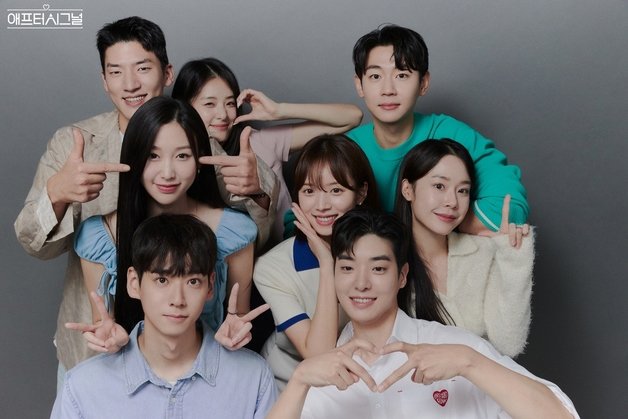
After Signal might not be worth the exasperation from watching the actual program, but at the least, it brings things to a sweet and satisfying close for Heart Signal 4 viewers.
Considering Heart Signal is frequently called the original Korean dating show and is a series that inspired many other popular dating programs, it would be saddening to see it continue downhill and crash completely. Hopefully, this new direction in After Signal can encourage the production team to make considerable changes for the next season.
(YouTube. Images via Channel A)

0 Comments